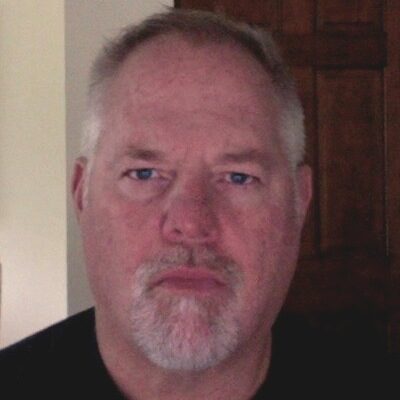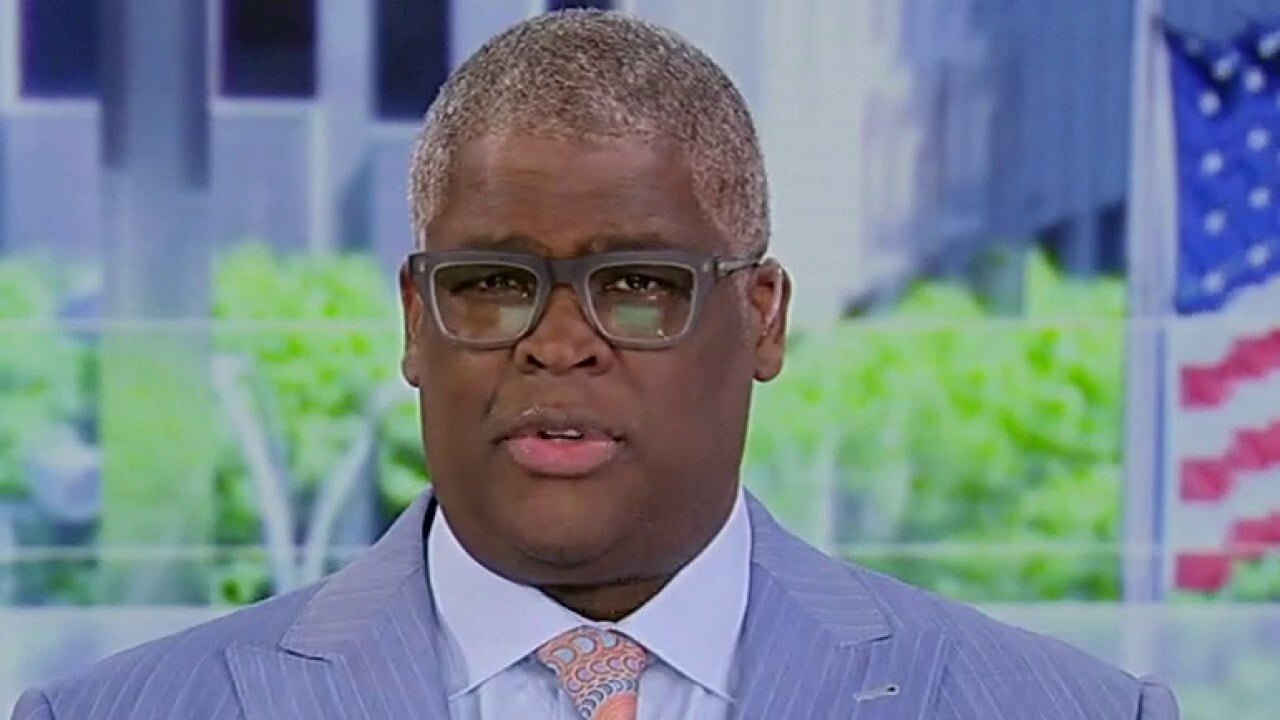Sure, it was a little cringe-worthy, but the sentiment was in the right place.
When WCCO Television said “goodbye” to longtime television personality Jason DeRusha after 19 years, they brought in a guy and a piano into the studio. The musician lodged DeRusha’s name into the lyrics of a couple of songs. For instance, on “Let it Be” by The Beatles, the revised lyrics included “When I find myself in times of trouble, Jason DeRusha comes to me, speaking words of wisdom, let it be.”
I’m from the Midwest and I know that was a sincere form of flattery and love, albeit a little mawkish.
WCCO’s DeRusha jumped to television in June of this year. Four days later and six city blocks from the WCCO TV headquarters, DeRusha flicked on the microphone inside the WCCO-AM 830, which airs weekdays from 3-6 p.m.
DeRusha said he’s always loved doing television news. It wasn’t as though he was fed up and wanted a change. In fact, he said he had incredible freedom to be himself on television.
“I reported on what I wanted to,” DeRusha said. “The move to radio was very much about opening doors at what I’d consider a midpoint of my career. This was an opportunity to learn new things, explore a different medium.”
DeRusha grew up in Des Plaines in suburban Chicago. He attended Maine West High School and rocked 8.9 watts on an FM station. “In high school we had WMTH and did a lot of play by play. This was before the Comcast’s of the world.”
He went on to study journalism at Marquette University, about an hour north of his hometown. “I knew from a very young age I was looking for a school where I could get a great education with a broadcast program. At Marquette, I didn’t have to sit around to get involved.”
A self-described nerd in college, he said he wasn’t the life of a party. Wasn’t a lot of fun. “I used to fill in on an easy-listening station but never told my friends.”
His relationship with WCCO has outlasted most marriages. DeRusha started as a featured guest with Chad Hartman.
“I’d been filling in on shows for 10 years,” DeRusha explained. “This year during my first full-time week, I realized how different this was going to be from filling in. It’s one thing to do two shows a month, and quite another to do five shows a week. I now have creativity to talk about different issues and have fun. All that while still engaging with our audience.”
DeRusha said fans have expressed how different it feels in how he delivers stories. He said they’re taken aback by how he used to read a story on television versus ‘experiencing’ it more on the radio.
“As a news anchor you don’t get to say as much as you feel as you’re always trying to get to traffic and weather,” DeRusha said. “Viewers said they felt I always had more to say than I was able to. Now I have that opportunity. It frees you up, a different way of thinking. The free-thinking allows you to make good talk segments that are different.”
On the radio, DeRusha will talk about ongoing stories, crime and some court cases, the same as he would on television. He explained topics covered on television will sometimes make a good transition to radio; other times they won’t.
“I’ve always been a believer that life is the ultimate prep for morning and TV and talk radio,” DeRusha said. “Things I say must resonate with the audience, it must be a similar experience.”
He said in the past he was hyper-focused on local news and stories. But there are times we might want to talk about national issues. He said his show and WCCO are a ‘full-service’ radio station.
“We invite everyone to the table,” DeRusha said. “I’m not coming at you from the Right or Left. I may say something one side hates, then vice versa. I’m going to have strong opinions. If you disagree with me you might convince me of something. I’ve had callers make such a good case it forced me to rethink my stance. There’s nothing better than that as host. To recognize when you may have been seeing something in the wrong context. Listeners bring things to the table I hadn’t thought of. Or caused me to look at a topic in the way they described.”
DeRusha said empathy for both sides of an opinion is critical
“My whole career has been about bringing people together. Making them a little smarter than they were before. We want to laugh and have some fun. I don’t think that’s ever going to change. I’m not going to come out being an absolute firebreather.”
Prior to DeRusha transitioning to radio, he’d heard horror stories about brand managers trying to micromanage the newbie. The boss walking them step by step through each segment. He said that hasn’t happened.
“Brad Lane has been incredible with me,” DeRusha said. “He’s been a wonderful coach. He knew I was figuring out a new medium. He never tried to say, ‘look, if you took this position, the phones would light up.’ The whole process for our show is figuring out what my authentic take might be. Is it one of my interests or a curiosity?”
DeRusha said he wouldn’t have taken this job if he thought they were going to push and mold him into a ‘personality,’ or to take a stance on a certain position.
He said it has been a real joy they have not tried to coach him into amping up stories and issues.
That kind of pseudo effort reeks of insecurity and the audience knows it when they smell it.
“They hired me because they knew me and my work,” DeRusha said. “Audiences here know me too. If I’d come on the air as a different person, I think the whole thing would fall apart. On TV people can spot a phony. On radio it’s more acute and obvious.”
DeRusha said he’s observed as other people have transitioned to radio from talk, and took a few notes along the way. He said his afternoon show is a drastically different approach than he’d take in the mornings.
“I don’t have fifteen guests and we aren’t overloaded with news reports,” DeRusha said. “It’s more lifestyle, politics. In the afternoons, you have the chance to breathe on the air. Especially since I started off during a political season, I could have felt very constrained.”
DeRusha is a well-known food critic in Minneapolis, a regular contributor to Minnesota Monthly. “I started reviewing suburban restaurants around Minneapolis,” he said. DeRusha was a James Beard Foundation Award finalist for his TV work covering food. The publication had a restaurant critic, but that person was being spread thin.
“The critic had a catalog that was huge and had trouble hitting all the new places,” DeRusha explained. He added it’s hard when a regular critic is reviewing a Michelin Star restaurant and then rushes downtown to review a hoagie stand. There’s a bit of a cultural difference and it’s perhaps best to keep them separate.
DeRusha said he isn’t like Anton Ego, the food critic in Ratatouille. He’s not trying to put the hurt on a restaurant, scribbling disparaging thoughts in his notebook, describing how a health-hazardous rat just prepared his meal. Instead, he takes more of an illuminating approach.
“I brought a journalist’s approach to food writing,” DeRusha said. “I ask a lot of questions.
When he arrives at a restaurant, DeRusha said most of the young employees at the restaurant don’t see him as Anton Ego. However, the older managers may get a little bit of a heart palpitation when they see the critic at a table. “My wife laughs,” DeRusha said. “She can identify the point I’ve been ‘discovered’ as the food critic. I bring in a lot of other food writers, chefs, writers,” De Rusha adds. “I love the fact they get to talk about what they’re doing. Talk about issues they’re passionate about.”
On the radio, DeRusha said you can give things a try. See if something sticks.
“That’s the beauty of this job,” he explained. “You give it a try and see if something works. If it doesn’t, so be it. The first six months have been a lot of experimenting. People have responded to things I’m passionate about. When I started filling in on talk, I realized it was important to ask the right questions to get a reaction. Now listeners want andexpect me to react.”
The host is the conduit, and at times the focal point. It’s a different rhythm in radio; telling a story, setting up the conflict, accentuating the rising action, revealing the decision point and result. In radio, you can start at the end and work your way back in a story. In television it’s the opposite.
“You have lots of different tools in your belt,” DeRusha said. “Different techniques for various stories. When I’m on the air I think about how I used to listen. I have two teenagers. I used to spend the afternoon drive in the car listening to the show While driving one kid to practice and picking the other up from school. I often think about being the listener in that moment.”

Jim Cryns writes features for Barrett News Media. He has spent time in radio as a reporter for WTMJ, and has served as an author and former writer for the Milwaukee Brewers. To touch base or pick up a copy of his new book: Talk To Me – Profiles on News Talkers and Media Leaders From Top 50 Markets, log on to Amazon or shoot Jim an email at jimcryns3_zhd@indeedemail.com.








